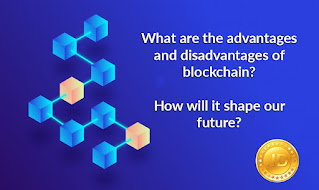Blockchain technology that originated from a mathematics branch called cryptography can seem difficult, and it can certainly be for any ordinary individual, but its central idea is pretty basic indeed. The technology first gained recognition as a cryptocurrency network such as Bitcoin. Traditional tracking systems are unable to scale with increasing demand for fast distribution services, so the blockchain future is close and is now expanding through a wave of industries.
To make faster paced decisions, companies need modified, secure and authentic data nowadays. In any sized company, it plays a larger role as it offers a scalable, immediate solution for every order authentication. Blockchain technology is basically a virtual ledger capable of tracking and verifying a high volume of digital transactions, allowing business processes to be more productive and cost-effective. New platforms created by Blockchain allow simple document coordination on a shared distributed ledger, making physical paperwork largely unnecessary.

Approvals and customs clearance can become faster with the use of smart contracts, reducing processing times for goods at customs checkpoints, which means entrepreneurs can run their companies more transparently. As the whole network leads to data authentication, Blockchain ensures trustworthy data across the transport and logistics ecosystem. For improved supply chain management, more open contracts, quicker payments and faster background checks, Blockchain can be a game-changer. Using the Internet of Things (IoT) and AI (Artificial Intelligence), Blockchain allows better freight tracking to improve performance, which can be especially useful for capacity monitoring. It also conducts efficient fleet or vehicle performance history monitoring for simpler & accurate on boarding of the carrier.
Intelligent contracts with efficient cost control and removal of intermediaries improve liquidity in the supply chain. Blockchain can evolve over time and, because of their distributed existence, are theoretically self-sustaining. Organizations across the business spectrum are coming to the realization that they can use blockchain technology to streamline their activities and provide their customers with better services. Together with intelligent contracts and digital currencies, the blockchain can make trade and government processes safer, quicker, more efficient and more scalable. And as more and more small players, backed by digital technology, enter the market, the economy will continue its journey towards decentralization.








